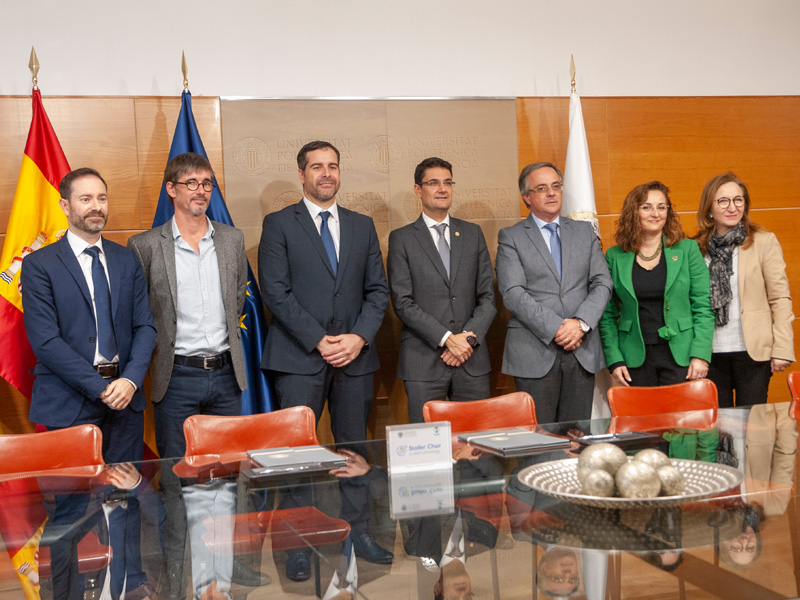Stoller Europe and the Universitat Politècnica de València have signed a collaboration agreement for the creation of the Stoller Chair in Plant Physiology. The event was held yesterday in the Honoris Hall of the Rectorate Building of the UPV with the attendance of the Rector Magnificent of the UPV, Mr. Francisco José Mora Mas, the director of the ETSIAMN, Mr. Alberto San Bautista Primo, the deputy director of the ETSIAMN, Chairs of Business and Cooperation and Director of the Stoller Chair, Ms. Loreto Fenollosa Ribera and other prominent representatives of the UPV. Stoller Europe was represented by its CEO, Sergio Aguilar, and its Marketing Director, Javier Bernabeu.
The main objective of the Stoller Chair is the promotion and development of scientific-technological knowledge in plant physiology, especially in the field of plant hormone cycles, in order to contribute, in this way, to achieving a more sustainable and future-oriented agriculture. The company hopes to achieve this objective through training, research and the implementation of advances in the framework of real agriculture.
The second objective is the rapprochement and collaboration between the business network, which has its finger on the pulse of the current agricultural sector, and the scientific community represented by the UPV. Stoller Europe wants to support research with direct application to current problems in agricultural production and, at the same time, generate tools that contribute to more efficient and accurate production models.
In the words of Stoller Europe’s CEO, Sergio Aguilar, “The UPV is for Stoller a national and international reference in the field of agriculture, deeply linked to advances in the field of digital farming and with a leading research community in the knowledge of the metabolic processes that govern the plant cycle. Both are ideal settings for the development of the objectives of the Stoller Chair”.
Among the projects to be developed jointly by the UPV and Stoller are: Study of the efficiency and behaviour of different nitrogen sources as fertilisers to reduce pollution due to excess nitrates, study of the behaviour of plants in different phenological phases when their hormonal balance is negatively affected by stressful situations, and improvement of agricultural production through the contribution of natural hormones at key phenological moments for production, negatively affected by adverse environmental causes.

